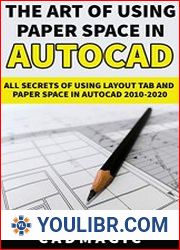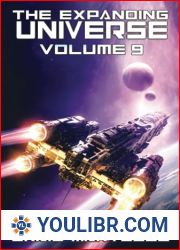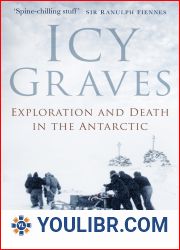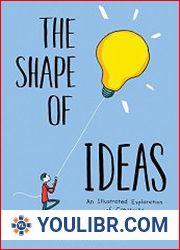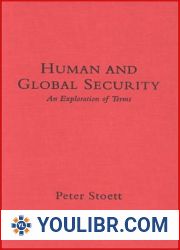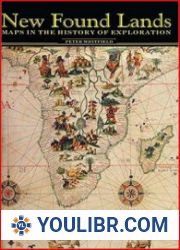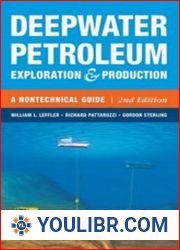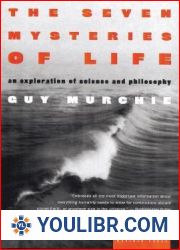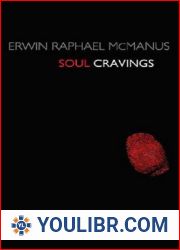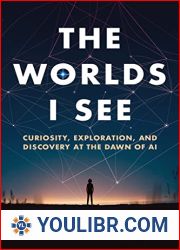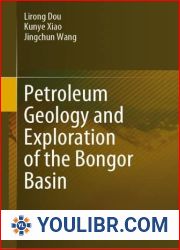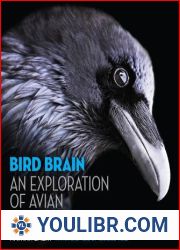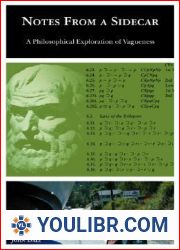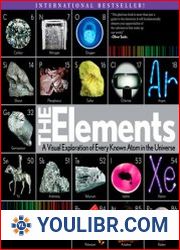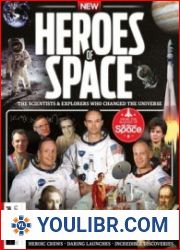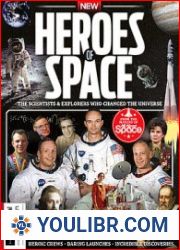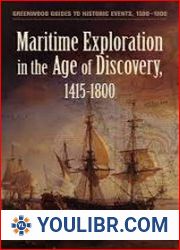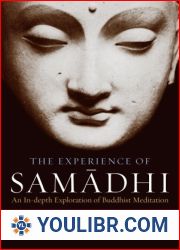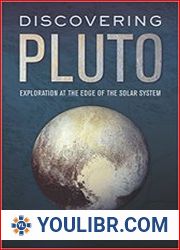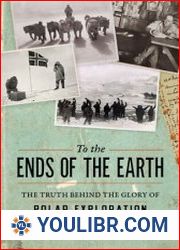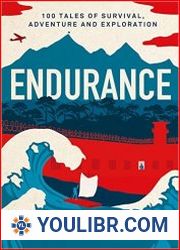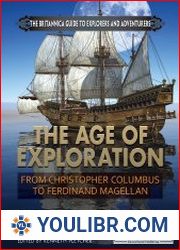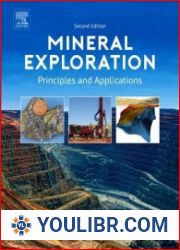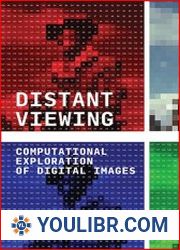
BOOKS - The Bioethics of Space Exploration

The Bioethics of Space Exploration
Author: Konrad Szocik
Year: June 13, 2023
Format: PDF
File size: PDF 7.0 MB
Language: English

Year: June 13, 2023
Format: PDF
File size: PDF 7.0 MB
Language: English

The Bioethics of Space Exploration: A New Frontier for Human Evolution As humanity continues to push the boundaries of space exploration, we are faced with a plethora of ethical dilemmas that challenge our understanding of what it means to be human. The Bioethics of Space Exploration, written by Konrad Szocik, delves into the complex moral and philosophical questions arising from long-term space missions, scientific missions, commercial missions, and space colonization. This thought-provoking book examines the arguments for and against human enhancement, somatic and germline gene editing, and the compatibility of space colonization with the ethics of quality of life and antinatalism. Scientific Missions: The Pursuit of Knowledge and Understanding The first type of space mission, scientific missions, is driven by the pursuit of knowledge and understanding. These missions aim to expand our knowledge of the universe, uncover new discoveries, and advance our technological capabilities. However, as humans venture further into space, they are exposed to novel environments that pose significant risks to their health and well-being.
Биоэтика освоения космоса: новый рубеж эволюции человека По мере того, как человечество продолжает раздвигать границы освоения космоса, мы сталкиваемся с множеством этических дилемм, которые ставят под сомнение наше понимание того, что значит быть человеком. Книга «Биоэтика освоения космоса», написанная Конрадом Шоциком, вникает в сложные моральные и философские вопросы, возникающие в результате долгосрочных космических миссий, научных миссий, коммерческих миссий и космической колонизации. Эта книга, заставляющая задуматься, исследует аргументы за и против улучшения человека, редактирования генов соматических и зародышевых линий, а также совместимости колонизации пространства с этикой качества жизни и антинатализма. Научные миссии: стремление к знаниям и пониманию Первый тип космической миссии, научные миссии, обусловлен стремлением к знаниям и пониманию. Эти миссии направлены на расширение наших знаний о Вселенной, раскрытие новых открытий и развитие наших технологических возможностей. Однако по мере того, как люди выходят в космос, они подвергаются воздействию новых условий, которые представляют значительный риск для их здоровья и благополучия.
Bioéthique de l'exploration spatiale : une nouvelle frontière de l'évolution humaine Alors que l'humanité continue de repousser les limites de l'exploration spatiale, nous sommes confrontés à de nombreux dilemmes éthiques qui remettent en question notre compréhension de ce que signifie être humain. livre « Bioéthique de l'exploration spatiale », écrit par Conrad Schocik, s'intéresse à des questions morales et philosophiques complexes découlant de missions spatiales à long terme, de missions scientifiques, de missions commerciales et de la colonisation spatiale. Ce livre, qui fait réfléchir, explore les arguments pour et contre l'amélioration humaine, l'édition des gènes des lignées somatiques et germinales, ainsi que la compatibilité de la colonisation de l'espace avec l'éthique de la qualité de vie et de l'antinatalisme. Missions scientifiques : le désir de savoir et de compréhension premier type de mission spatiale, les missions scientifiques, est conditionné par le désir de savoir et de compréhension. Ces missions visent à améliorer notre connaissance de l'univers, à découvrir de nouvelles découvertes et à développer nos capacités technologiques. Cependant, à mesure que les gens entrent dans l'espace, ils sont exposés à de nouvelles conditions qui présentent un risque important pour leur santé et leur bien-être.
La bioética de la exploración espacial: una nueva frontera de la evolución humana A medida que la humanidad continúa extendiendo los límites de la exploración espacial, nos enfrentamos a muchos dilemas éticos que cuestionan nuestra comprensión de lo que significa ser humano. libro «Bioética de la exploración espacial», escrito por Conrad Shocke, ahonda en las complejas cuestiones morales y filosóficas derivadas de misiones espaciales a largo plazo, misiones científicas, misiones comerciales y colonización espacial. Este libro, que hace reflexionar, explora los argumentos a favor y en contra de la mejora humana, la edición de genes de líneas somáticas y germinales, así como la compatibilidad de la colonización del espacio con la ética de la calidad de vida y el antinatalismo. Misiones científicas: búsqueda del conocimiento y la comprensión primer tipo de misión espacial, las misiones científicas, se deben a la búsqueda del conocimiento y la comprensión. Estas misiones tienen como objetivo ampliar nuestro conocimiento del universo, revelar nuevos descubrimientos y desarrollar nuestras capacidades tecnológicas. n embargo, a medida que las personas salen al espacio, se exponen a nuevas condiciones que representan un riesgo significativo para su salud y bienestar.
Bioética da exploração espacial: a nova fronteira da evolução humana À medida que a humanidade continua a descolar os limites da exploração espacial, enfrentamos muitos dilemas éticos que questionam a nossa compreensão do que significa ser humano. O livro Bioética da Exploração Espacial, escrito por Konrad Schocik, envolve questões morais e filosóficas complexas resultantes de missões espaciais de longo prazo, missões científicas, missões comerciais e colonização espacial. Este livro, que faz refletir, explora os argumentos a favor e contra a melhoria humana, a edição de genes somáticos e fetais, e a compatibilidade da colonização do espaço com a ética da qualidade de vida e o antiinatalismo. Missões científicas: busca pelo conhecimento e compreensão O primeiro tipo de missão espacial, missões científicas, deve-se à busca do conhecimento e da compreensão. Estas missões têm como objetivo expandir os nossos conhecimentos sobre o universo, divulgar novas descobertas e desenvolver as nossas capacidades tecnológicas. No entanto, à medida que as pessoas entram no espaço, elas estão expostas a novas condições que oferecem riscos significativos à sua saúde e ao seu bem-estar.
Bioetica dell'esplorazione dello spazio: la nuova frontiera dell'evoluzione umana Mentre l'umanità continua ad espandere i confini dell'esplorazione dello spazio, siamo di fronte a molti dilemmi etici che mettono in discussione la nostra comprensione di cosa significhi essere umani. Il libro «Bioetica dell'esplorazione dello spazio», scritto da Konrad Schocik, affronta le complesse questioni morali e filosofiche derivanti da missioni spaziali a lungo termine, missioni scientifiche, missioni commerciali e colonizzazione spaziale. Questo libro, che fa riflettere, esamina argomenti a favore e contro il miglioramento umano, la modifica dei geni delle linee somatiche e fetali e la compatibilità della colonizzazione dello spazio con l'etica della qualità della vita e dell'antinatalismo. Missioni scientifiche: ricerca di conoscenza e comprensione Il primo tipo di missione spaziale, missioni scientifiche, è dovuto alla ricerca di conoscenza e comprensione. Queste missioni mirano ad ampliare la nostra conoscenza dell'universo, a scoprire nuove scoperte e a sviluppare le nostre capacità tecnologiche. Tuttavia, mentre le persone entrano nello spazio, sono esposte a nuove condizioni che rappresentano un rischio significativo per la loro salute e il loro benessere.
Bioethik der Weltraumforschung: Eine neue Grenze der menschlichen Evolution Während die Menschheit weiterhin die Grenzen der Weltraumforschung überschreitet, stehen wir vor vielen ethischen Dilemmata, die unser Verständnis davon, was es bedeutet, ein Mensch zu sein, in Frage stellen. Das Buch „Bioethik der Weltraumforschung“ von Konrad Schotzik befasst sich mit komplexen moralischen und philosophischen Fragen, die sich aus langfristigen Weltraummissionen, wissenschaftlichen Missionen, kommerziellen Missionen und der Weltraumkolonisation ergeben. Dieses Buch, das zum Nachdenken anregt, untersucht Argumente für und gegen die Verbesserung des Menschen, die Bearbeitung von Genen somatischer und Keimbahnlinien sowie die Kompatibilität der Kolonisierung des Raums mit der Ethik der bensqualität und des Antinatalismus. Wissenschaftliche Missionen: das Streben nach Wissen und Verständnis Die erste Art von Weltraummission, wissenschaftliche Missionen, wird durch das Streben nach Wissen und Verständnis angetrieben. Diese Missionen zielen darauf ab, unser Wissen über das Universum zu erweitern, neue Entdeckungen zu entdecken und unsere technologischen Fähigkeiten zu entwickeln. Wenn Menschen jedoch in den Weltraum hinausgehen, sind sie neuen Bedingungen ausgesetzt, die ein erhebliches Risiko für ihre Gesundheit und ihr Wohlbefinden darstellen.
Kosmiczna Eksploracja Bioetyka: Nowa granica w ludzkiej ewolucji Kiedy ludzkość nadal pcha granice eksploracji przestrzeni kosmicznej, stoimy w obliczu wielu dylematów etycznych, które podważają nasze zrozumienie tego, co oznacza być człowiekiem. Książka „Bioetyka eksploracji kosmicznej”, napisana przez Konrada Szotzika, zagłębia się w złożone pytania moralne i filozoficzne wynikające z długofalowych misji kosmicznych, misji naukowych, misji handlowych i kolonizacji kosmosu. Ta prowokująca do myślenia książka bada argumenty za i przeciwko ludzkiej poprawy, somatycznej i germline edycji genów, a także zgodność kolonizacji przestrzeni z etyką jakości życia i antynatalizmu. Misje naukowe: pragnienie wiedzy i zrozumienia Pierwszy rodzaj misji kosmicznej, misji naukowych, wynika z pragnienia wiedzy i zrozumienia. Misje te mają na celu rozszerzenie naszej wiedzy o wszechświecie, odkrycie nowych odkryć i rozwój naszych możliwości technologicznych. Kiedy jednak ludzie wchodzą w kosmos, są narażeni na nowe warunki, które stanowią poważne zagrożenie dla ich zdrowia i dobrobytu.
''
Uzay Keşfi Biyoetik: İnsan Evriminde Yeni Bir Sınır İnsanlık, uzay araştırmalarının sınırlarını zorlamaya devam ettikçe, insan olmanın ne anlama geldiğine dair anlayışımıza meydan okuyan birçok etik ikilemle karşı karşıyayız. Konrad Szotzik tarafından yazılan "The Bioethics of Space Exploration'adlı kitap, uzun vadeli uzay görevlerinden, bilimsel görevlerden, ticari görevlerden ve uzay kolonizasyonundan kaynaklanan karmaşık ahlaki ve felsefi soruları ele alıyor. Bu düşündürücü kitap, insan gelişimi, somatik ve germline gen düzenlemesi ve uzay kolonizasyonunun yaşam kalitesi etiği ve anti-natalizm ile uyumluluğunun argümanlarını araştırıyor. Bilimsel görevler: bilgi ve anlayış arzusu Uzay görevinin ilk türü olan bilimsel görevler, bilgi ve anlayış arzusundan kaynaklanmaktadır. Bu misyonlar, evren hakkındaki bilgimizi genişletmeyi, yeni keşifleri ortaya çıkarmayı ve teknolojik yeteneklerimizi geliştirmeyi amaçlamaktadır. Bununla birlikte, insanlar uzaya çıktıkça, sağlıkları ve refahları için önemli riskler oluşturan yeni koşullara maruz kalırlar.
أخلاقيات استكشاف الفضاء البيولوجية: حدود جديدة في التطور البشري بينما تواصل البشرية دفع حدود استكشاف الفضاء، نواجه العديد من المعضلات الأخلاقية التي تتحدى فهمنا لما يعنيه أن تكون إنسانًا. يتعمق كتاب «الأخلاقيات الحيوية لاستكشاف الفضاء»، الذي كتبه كونراد زوتزيك، في الأسئلة الأخلاقية والفلسفية المعقدة الناشئة عن البعثات الفضائية طويلة المدى والبعثات العلمية والبعثات التجارية واستعمار الفضاء. يستكشف هذا الكتاب المثير للتفكير الحجج المؤيدة والمعارضة لتعزيز الإنسان، والتحرير الجيني الجسدي والجرثومي، وتوافق استعمار الفضاء مع أخلاقيات جودة الحياة ومعاداة الإنجاب. البعثات العلمية: الرغبة في المعرفة والفهم يرجع النوع الأول من البعثات الفضائية، البعثات العلمية، إلى الرغبة في المعرفة والفهم. تهدف هذه المهام إلى توسيع معرفتنا بالكون، والكشف عن اكتشافات جديدة وتطوير قدراتنا التكنولوجية. ومع ذلك، عندما يغامر البشر بالدخول إلى الفضاء، فإنهم يتعرضون لظروف جديدة تشكل مخاطر كبيرة على صحتهم ورفاهيتهم.
空間探索的生物倫理學:人類進化的新裏程碑隨著人類繼續突破太空探索的邊界,我們面臨著許多倫理困境,使我們對人類意味著什麼的理解受到質疑。康拉德·肖科克(Conrad Schocik)撰寫的《太空探索生物倫理學》一書深入探討了長期太空任務,科學任務,商業任務和太空殖民所引起的復雜道德和哲學問題。這本書引起了人們的思考,探討了支持和反對人類進步,軀體和生殖系基因編輯以及空間殖民化與生活質量和反納粹主義倫理的兼容性的論點。科學任務:對知識和理解的追求第一類空間任務,即科學任務,是基於對知識和理解的追求。這些使命旨在擴大我們對宇宙的了解,揭示新的發現並發展我們的技術能力。然而,隨著人類進入太空,他們面臨著新的條件,對他們的健康和福祉構成重大風險。








 49
49  3 TON
3 TON


